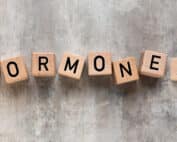Commercials tout all of the benefits of testosterone, yet the question I get asked most often is can testosterone cause cancer? Testosterone is used in men and women to enhance energy, strength, endurance and libido. The latest studies show protection against heart disease in men. There is, however, a myth that it may cause cancer.
Can Testosterone Cause Cancer – A Study
In an article published in European Urology in 2006, Harvard-based physician, Abraham Morgentaler, set out to answer the question can testosterone cause cancer of the prostate. He reviewed the literature and cited a study done in 1941. For instance, that ignited concern about the relationship between testosterone and prostate cancer.
The study reported the reduction of testosterone through castration in patients with prostate cancer caused metastatic prostate cancer to regress. Giving testosterone caused prostate cancer to grow. The caveat is that this growth only occurred in one patient! Dr. Huggins had based his “enhanced growth” conclusion on a single patient, using a test—acid phosphatase—that has since been abandoned because it provides such erratic results!
 The Findings
The Findings
This is not sufficient evidence to answer the question can testosterone cause cancer of the prostate. After a review of the literature regarding testosterone and prostate cancer, he found that the reports of testosterone causing rapid growth of prostate cancer occurred in men who already had extremely low testosterone levels. However, due to castration or estrogen treatment.
After his year-long review of the literature, he concluded: “This historical perspective reveals that there is not now, nor has there ever been, a scientific basis for the belief that testosterone causes prostate cancer to grow.” Yet this study has formed the basis of treatment and prevention of prostate cancer depriving many men of the benefits of testosterone.
Morgentaler continued to publish many more articles in journals, such as The New England Journal of Medicine, Lancet, Urology and much more. He wrote a book “Testosterone for Life “ to debunk the myth and answer the question can testosterone cause cancer of the prostate. It takes decades to change medical treatment as no one wants to do anything that may cause harm and is not universally supported.
Other Reports on Testosterone and Cancer
Many prestigious journals published articles that addressed the issue can testosterone cause cancer. Furthermore, as well as issues of all-cause mortality and quality of life. Here are some of the articles and conclusions:
- Circulation 2007: “In men, endogenous testosterone concentrations are inversely related to mortality due to cardiovascular disease and all causes.”
- Therapeutics and Clinical Risk Management in 2009 reviewed the literature: “Perhaps the most controversial area is the issue of risk, especially possible stimulation of prostate cancer by testosterone, even though no evidence to support this risk exists.”
- The European Endocrine Society 2010: “low testosterone levels predict an increase in all-cause mortality.”
- The European Heart Journal in 2010: “There is increasing evidence that testosterone deficiency syndrome is associated with all-cause mortality and, in particular, cardiovascular death.”
- Another study in The European Heart Journal in 2010 concluded: “Low serum testosterone levels were associated with an increased risk of all-cause mortality independent of numerous risk factors. As serum testosterone levels are inversely related to mortality due to cardiovascular disease and cancer, it may be used as a predictive marker. “
- The Journal of Clinical Endocrinology and Metabolism in 2012: “testosterone treatment was associated with decreased mortality compared to no testosterone treatment.”
- In 2016 Sexual Medicine Reviews article “Testosterone Therapy in Prostate Cancer Survivors” concluded “Despite the historical reluctance toward the use of testosterone therapy in men with a history of prostate cancer, modern evidence suggests that testosterone replacement is a safe and effective treatment option for hypogonadal men with non-high-risk prostate cancer. Additional work to definitively demonstrate the efficacy and safety of testosterone therapy in men with prostate cancer is needed. Furthermore, persistent vigilance and surveillance of treated men remain necessary.”
- In 2016 the Journal Translational Andrology and Urology authors evaluating the literature giving testosterone to patients with a history of prostate cancer, the authors came to the conclusion that testosterone “results in improvements in quality of life with little evidence of biochemical recurrence or progression in men with a history of prostate cancer, or de novo cancer in unaffected men.
 Consult With a Doctor
Consult With a Doctor
There are many more studies. However, double-blind controlled studies over long periods of time are necessary to change what is deemed medically acceptable. There are many factors that contribute to the development of cancer. Such as smoking, stress, a high-fat diet, toxic exposure, genetics, and lifestyle. However, the evidence points to the benefits and low risks in the face of outdated beliefs.
A healthy lifestyle is your best defense against any kind of cancer. Should you choose to have testosterone replacement therapy, careful monitoring by a functional medicine doctor who is well versed in monitoring hormones and their metabolites can reduce the risks and enhance the benefits.
Dr. Lorraine Maita is a recognized and award-winning holistic, functional, and anti-aging physician and author. She transforms people’s lives by getting to the root cause of illness using the best of science and nature. Her approach is personalized, precision medicine where you are treated as the unique individual you are. Whether you’re considering hormone replacement therapy or wondering how you can raise your hormone levels naturally, contact the office to schedule your appointment today!





She is a recognized and award-winning holistic, functional, integrative and anti-aging healthcare practitioner, speaker and author, and has been featured in ABC News, Forbes, WOR Radio and many media outlets to spread the word that you can live younger and healthier at any age.